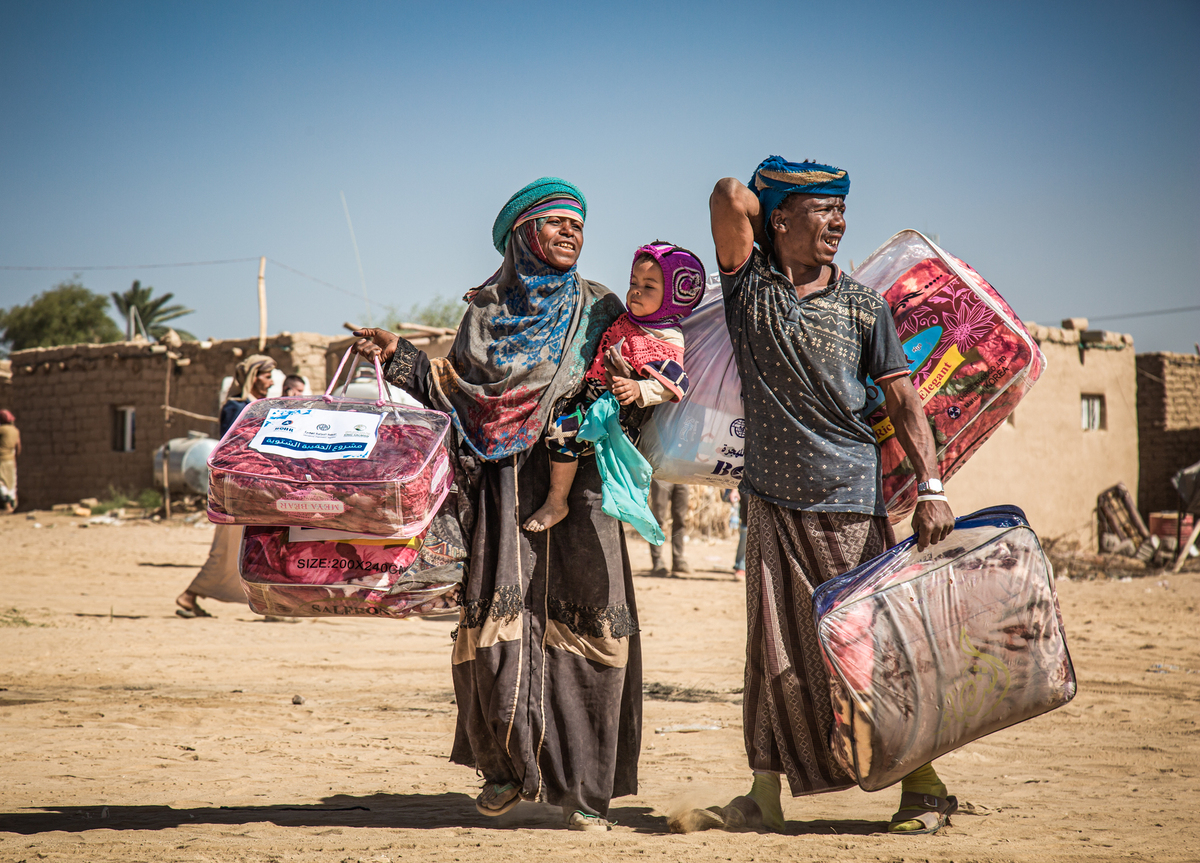
Here are ten reasons why we need to be paying attention to the Yemen donor's pledging conference that occurs tomorrow:
1. WORLD’S LARGEST CRISIS: Yemen remains the world’s largest humanitarian crisis, with more than 24 million people – 80 per cent of the population – in need of assistance and protection. COVID-19 is exacerbating these needs in Yemen. Epidemiologists estimate the virus could spread faster, more widely and with deadlier consequences than in many other countries.
2. IMPACT OF COVID-19: With only half of facilities fully functioning, Yemen’s health system needs significant assistance to counter the threat of COVID-19. Humanitarian agencies are scaling up outreach, prevention and case-management. Preserving large-scale existing aid programmes in the health, WASH, nutrition, education and other sectors also offers an essential defence against infection for millions of people.
3. OPERATING ENVIRONMENT: Humanitarians must be granted unconditional access to all populations in need. Humanitarian agencies and donors are working together to address restrictions on aid delivery in northern Yemen. These efforts have shown progress on four of seven key issues (cancellation of 2 per cent levy, NGO agreements, WFP biometric registration and assessments), and more is needed. As we continue to work together on these issues, donors should have new funds ready as more progress is achieved.
4. PRIORITIZED, RISK-CALIBRATED STRATEGY: Humanitarian agencies have focused the 2020 response strategy to prioritize the most urgent, life-saving activities. Agencies have calibrated the risk profile of programmes, strengthening measures to ensure aid goes where it should. Where risks are too high, agencies are decreasing delivery to manageable levels. Agencies have also based this year’s strategy on expected response capacity for the rest of the year in light of COVID-19 and other challenges.
5. ACHIEVEMENTS AND ABSORPTION CAPACITY: The UN-led response in Yemen assists 14 million people every month. These programmes have successfully prevented large-scale famine, rolled back the worst cholera epidemic in recorded history and supported millions of people displaced from their homes, among other achievements. Agencies are already delivering very large-scale programmes and are eager to continue this work across the country. Programme-critical international staff have remained in Yemen since the COVID-19 outbreak began, and operations are continuing at scale.
6. SEVERE FUNDING SHORTAGES: Of 41 core UN assistance programmes, 31 are at risk of closure or major reduction in the coming weeks unless donors commit new funding immediately. As Yemen confronts COVID-19, reductions and closures would drastically scale back the kind of assistance the country needs now more than ever, including basic health, WASH and nutrition services.
7. SUPPORTING THE YEMENI PEOPLE AND FUNDING CONDITIONS: Pledging now will clearly demonstrate to Yemeni civilians that the international community is not abandoning them while they still urgently need help. Donors may choose to announce that pledges will be paid progressively over the year, contingent on sustainable progress in improving the operating environment.
8. MOVING CLOSER TO PEACE: The best thing anyone can do to end the humanitarian crisis in Yemen is to stop the war. Despite recent flares in violence, we may be closer to ending this conflict than ever before. Preserving a robust, principled humanitarian aid operation will support the Special Envoy’s efforts to facilitate a successful political process at a critical time.
9. COLLAPSING ECONOMY: The Yemeni rial is again losing value, moving towards levels unseen since late 2018 and that were a major factor pushing Yemen to the brink of widespread famine. At the time, large-scale humanitarian assistance stopped the slide towards famine. As economic conditions again unravel, aid programmes must continue. We also need regular foreign currency injections to strengthen the currency and the resumption of regular salary payments to civil servants.
10. TREATMENT OF MIGRANTS AND VULNERABLE COMMUNITIES: COVID-19 should not be exploited to instrumentalize national security priorities like migrant encampment, detention, relocation or deportation. International support is needed to advocate for the release of migrants being held in detention and for safe passage and protection to be afforded to stranded migrants. Rhetoric blaming the COVID-19 pandemic on vulnerable communities must end. COVID-19 respects no borders—it targets everyone, regardless of political affiliation, location, tribe or immigration status. There is no evidence that one group of people is more responsible for virus transmission than another. Yemen’s longstanding charitable acceptance of, and support to, vulnerable communities, including migrants, refugees and displaced people, to continue.

3 thoughts on “Why is the Yemen donor pledging conference so important?”